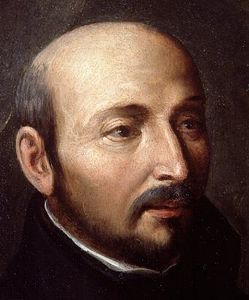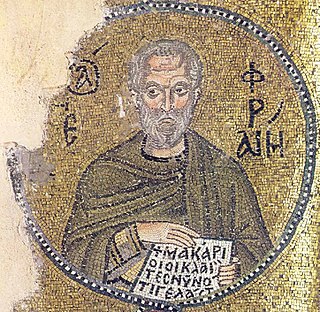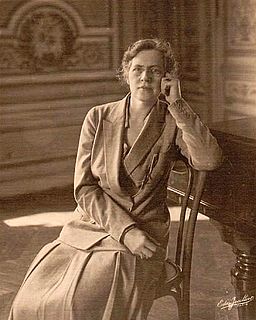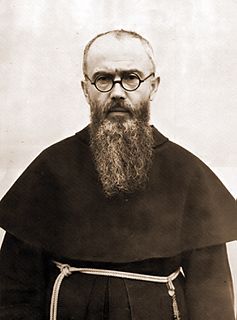A Quote by Pope Francis
This may sound like heresy, but it is the greatest truth! It is more difficult to let God love us, than to love Him! The best way to love Him in return is to open our hearts and let Him love us. Let Him draw close to us and feel Him close to us. This is really very difficult: letting ourselves be loved by Him. And that is perhaps what we need to ask today in the Mass: 'Lord, I want to love You, but teach me the difficult science, the difficult habit of letting myself be loved by You, to feel You close and feel Your tenderness ! May the Lord give us this grace.
Quote Topics
Ask
Best
Best Way
Close
Difficult
Draw
Feel
Give
God
God Love
Grace
Greatest
Habit
Hearts
Heresy
Him
I Want To Love You
Letting
Like
Like Her
Lord
Love
Love You
Loved
Mass
May
Me
More
Myself
Need
Open
Our
Ourselves
Perhaps
Really
Return
Science
Sound
Teach
Tenderness
Than
To Love
Today
Truth
Us
Very
Want
Way
Your
Related Quotes
How easily we make things as way, truth, and life. Or, we call hot atmosphere as life, we label clear thought as life. We consider strong emotion or outward conduct as life. In reality, though, these are not life. We ought to realize that only the Lord is life. Christ is our life. And it is the Lord who lives out this life in us. Let us ask Him to deliver us from the many external and fragmentary affairs that we may touch only Him. May we see the Lord in all things-way, truth, and life are all found in knowing Him. May we really meet the Son of God and let Him live in us. Amen.
God’s love sets us free from the need to seek approval. Knowing that we are loved by God, accepted by God, approved by God, and that we are new creations in Christ empowers us to reject self-rejection and embrace a healthy self-love. Being secure in God’s love for us, our love for Him, and our love for ourselves, prepares us to fulfill the second greatest commandment: To love our neighbor as ourselves.
Let us pause before the Child of Bethlehem. Let us allow our hearts to be touched, let us allow ourselves to be warmed by the tenderness of God; we need his caress. God is full of love: to him be praise and glory forever! God is peace: let us ask him to help us to be peacemakers each day, in our life, in our families, in our cities and nations, in the whole world. Let us allow ourselves to be moved by God's goodness.
Whenever we think of Christ, we should recall the love that led Him to bestow on us so many graces and favors, and also the great love God showed in giving us in Christ a pledge of His love; for love calls for love in return. Let us strive to keep this always before our eyes and to rouse ourselves to love Him.
So let us ask ourselves this evening, in adoring Christ who is really present in the Eucharist: do I let myself be transformed by him? Do I let the Lord who gives himself to me, guide me to going out ever more from my little enclosure, in order to give, to share, to love him and others? Brothers and sisters, following, communion, sharing. Let us pray that participation in the Eucharist may always be an incentive: to follow the Lord every day, to be instruments of communion and to share what we are with him and with our neighbour. Our life will then be truly fruitful.
Anyone who knows he is loved is in turn prompted to love. It is the Lord himself, who loved us first, who asks us to place at the center of our lives love for him and for the people he has loved. It is especially adolescents and young people, who feel within them the pressing call to love, who need to be freed from the widespread prejudice that Christianity, with its commandments and prohibitions, sets too many obstacles in the path of the joy of love and, in particular prevents people from fully enjoying the happiness that men and women find in their love for one another.
You victorious martyrs who endured torments gladly for the sake of God and Savior, you who have boldness of speech toward the Lord Himself, you saints, intercede for us who are timid and sinful men, full of sloth, that the grace of Christ may come upon us, and enlighten the hearts of all of us so that we may love Him.
When Jesus looked down from the cross, he didn't think “I am giving myself to you because you are so attractive to me.” No, he was in agony, and he looked down at us - denying him, abandoning him, and betraying him - and in the greatest act of love in history, he STAYED. He said, “Father, forgive them, they don't know what they are doing.” He loved us, not because we were lovely to him, but to make us lovely.
Grace is more than mercy and love. It super-adds to them. It denotes, not simply love, but the love of a sovereign, transcendent Superior. One that may do what He will. That may wholly choose whether He will love or no. Now God, who is an infinite Sovereign, who might have chosen whether ever He would love us or no; for Him to love us, this is Grace.
Let us give ourselves to the Immaculata [Mary]. Let her prepare us, let her receive Him [Jesus] in Holy Communion. This is the manner most perfect and pleasing to the Lord Jesus and brings great fruit to us." Because "the Immaculata knows the secret, how to unite ourselves totally with the heart of the Lord Jesus... We do not limit ourselves in love. We want to love the Lord Jesus with her heart, or rather that she would love the Lord with our heart.
We are children, perhaps, at the very moment when we know that it is as children that God loves us - not because we have deserved his love and not in spite of our undeserving; not because we try and not because we recognize the futility of our trying; but simply because he has chosen to love us. We are children because he is our father; and all of our efforts, fruitful and fruitless, to do good, to speak truth, to understand, are the efforts of children who, for all their precocity, are children still in that before we loved him, he loved us, as children, through Jesus Christ our lord.


































